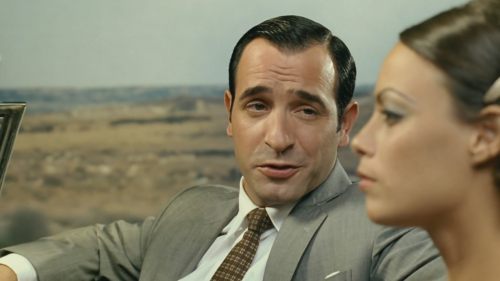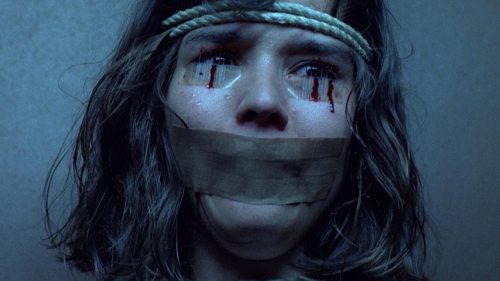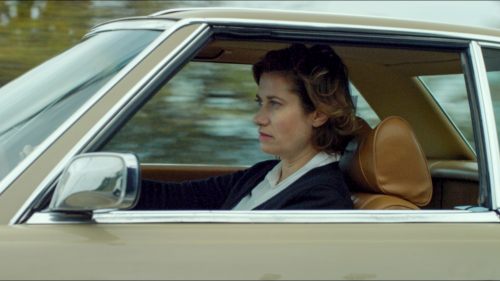MUBI Movies: HARA-KIRI: DEATH OF A SAMURAI (2011)
MUBI is a streaming service catering to cinephiles who believe in quality over quantity. Each day, MUBI adds a new film to its library, where it will stay for 30 days, after which it circulates out and gives room for another new entry. Throughout 2019, we will highlight one MUBI movie per month to help illustrate the catalog’s breadth and importance.
If you know your samurai cinema, you’re probably familiar with Hara-Kiri, if not the film with that title, then the cultural concept around which that film’s drama revolves. Hara-kiri is a form of ritualistic suicide committed by samurai attempting to save face, either as recompense for an act of cowardice or as a way to escape a dishonorable death or lifestyle. Masaki Kobayashi’s 1963 film, Hara-Kiri, is an adaptation of a novel by Yasuhiko Takiguchi that examines the code of samurai honor with cynicism and ire, framing feudal Japan as a culture built so rigidly around rules that it doesn’t hold any capacity for humanity. It’s a classic of the samurai genre, and it’s well worth checking out if you’re so inclined.
What less of you may be aware of is that Takashi Miike remade this film in 2011 as Hara-Kiri: Death of a Samurai. I wouldn’t blame you for letting this one slip by, considering how prolific Miike’s filmography is, but in terms of recreating a classic, it’s a worthy entry in that filmography. Just as the in the original story, we open on Hanshirô (Ebizô Ichikawa), a masterless samurai hoping to commit hara-kiri on the premises of a local lord Kageyu (Kôji Yakusho). Believing that Hanshirô is attempting to defraud the estate by hoping for an offer of charity in lieu of suicide, Kageyu recounts the story of a samurai named Motome (Eita) who recently came to his estate with a similar request but tried to back out at the last second. At the conclusion of the tale, Hanshirô claims to have no knowledge of this other samurai and still wishes to proceed. And yet, as the ceremony threatens to commence, it seems that there’s more to Hanshirô than he claims.
If you’re familiar with the first film or the original novel, Miike’s version is not going to be revelatory in its differences. In fact, it’s nearly a beat for beat recreation of the first film, albeit with a bit more economy in the present day narrative that wraps around the lengthier, meatier flashback sequences that allow Hanshirô’s motivations to come into focus. This does nothing to detract from the impact of the story, though, which hinges upon the idea that strict adherence to codes of honor is an inhuman farce, a way for those in power to excuse themselves from compassion by demanding the ultimate sacrifice of one’s life in exchange for charity. A centerpiece of the film’s symbolism is a display of ceremonial armor, which is eventually dashed to the floor in demonstration of its hollowness and worthlessness. It’s powerful stuff that makes one question the rules each of us live by, and whether those rules are more self-serving than we realize.
However, the main reason to be invested in this remake is for Takashi Miike’s direction, which is relatively restrained but still bears his notable trademarks. This isn’t a particularly bloody story, but Miike milks the violence for what it’s worth. He makes Motome’s attempts to impale himself on a blunt bamboo sword uncomfortably grueling to watch, as the camera lingers on his exasperated expression while a crowd of wealthier samurai watch pitilessly. Another character’s illness is shown in rich red hues vomited upon wooden floorboards. The kicker, though – and probably the reason why Miike was drawn to the material – is a legendary swordfight between Hanshirô and an army of samurai with only a bamboo sword of his own for protection. It’s a fantastic fight that serves as the ultimate expression of Hanshirô’s worth compared to his wealthier, more arrogant, more complacent counterparts, and Ichikawa carries it with both physical grace and emotional gravitas.
Hara-Kiri: Death of a Samurai is one of those rare instances where a remake is about on par with the original. Though the stripped-down monochromatic nature of the original film is a touch more melodramatic due to the limitations of its time, this remake retains the spirit of that original while also indulging in a bit more bloody spectacle to make the emotional impact of those beats hit home. If samurai cinema is your thing, this is essential viewing.
Hara-Kiri: Death of a Samurai is available now on MUBI as part of its Cannes Takeover event!



